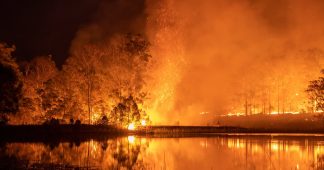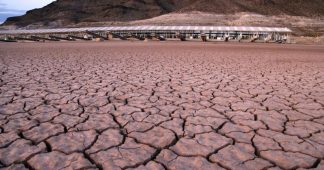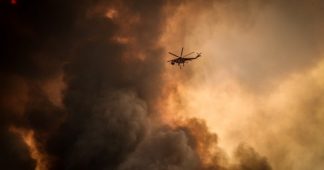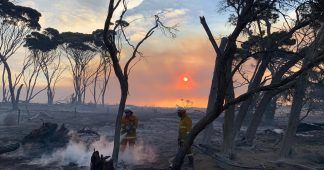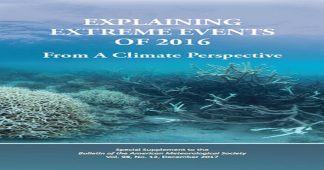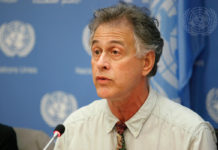It breaks my heart to watch the country I love irrevocably wounded because of the Australian government’s refusal to act on climate change
This is part of a series of essays by Australian writers responding to the challenges of 2020
by Joëlle Gergis
If you’ve ever been around someone who is dying, it may have struck you how strong a person’s lifeforce really is. When my dad was gravely ill, an invisible point of no return was gradually crossed, then suddenly death was in plain sight. We stood back helplessly, knowing that nothing more could be done, that something vital had slipped away. All we could do is watch as life extinguished itself in agonising fits and starts.
As a climate scientist watching the most destructive bushfires in Australian history unfold, I felt the same stomach-turning recognition of witnessing an irreversible loss.
The relentless heat and drought experienced during our nation’s hottest and driest year on record saw the last of our native forests go up in smoke. We saw terrified animals fleeing with their fur on fire, their bodies turned to ash. Those that survived faced starvation among the charred remains of their obliterated habitats.
During Australia’s Black Summer, more than 3 billion animals were incinerated or displaced, our beloved bushland burnt to the ground. Our collective places of recharge and contemplation changed in ways that we can barely comprehend. The koala, Australia’s most emblematic species, now faces extinction in New South Wales by as early as 2050.
Recovering the diversity and complexity of Australia’s unique ecosystems now lies beyond the scale of human lifetimes. What we witnessed was inter-generational damage: a fundamental transformation of our country.
Then, just as the last of the bushfires went out, recording-breaking ocean temperatures triggered the third mass bleaching event recorded on the Great Barrier Reef since 2016. This time, the southern reef – spared during the 2016 and 2017 events – finally succumbed to extreme heat. The largest living organism on the planet is dying.
As one of the dozen or so Australian lead authors involved in consolidating the physical science basis for the United Nations’ Intergovernmental Panel on Climate Change (IPCC) Sixth Assessment report, I’ve gained terrifying insight into the true state of the climate crisis and what lies ahead. There is so much heat already baked into the climate system that a certain level of destruction is now inevitable. What concerns me is that we may have already pushed the planetary system past the point of no return. That we’ve unleashed a cascade of irreversible changes that have built such momentum that we can only watch as it unfolds.
Read more at www.theguardian.com
